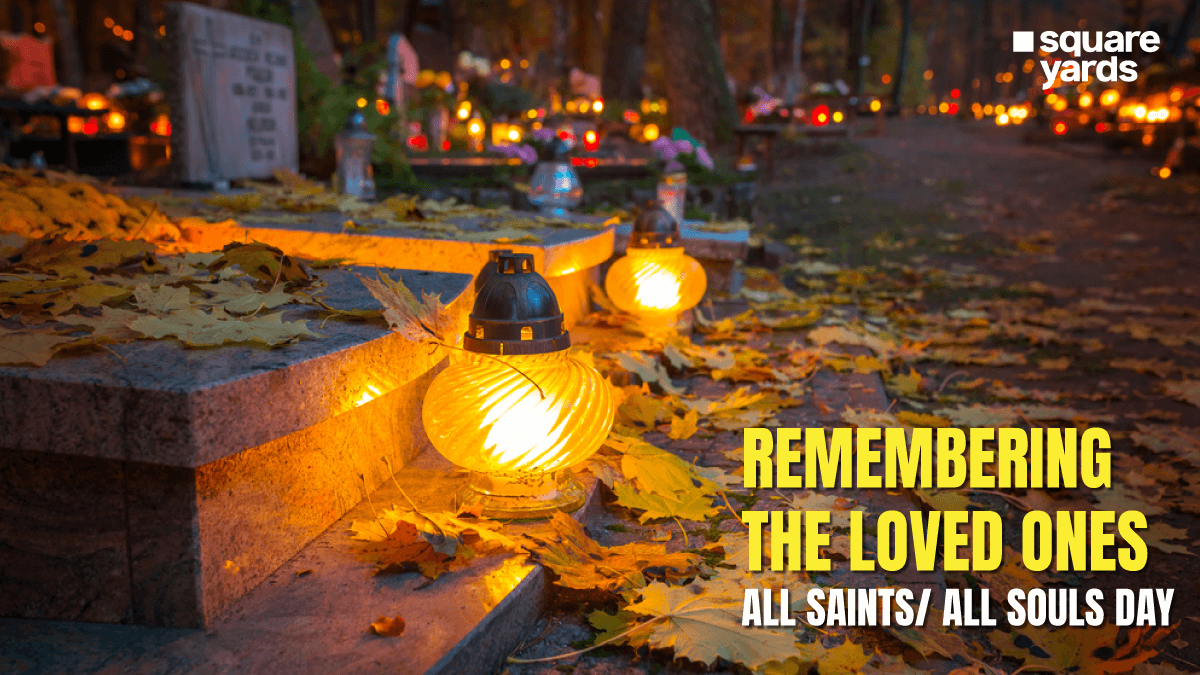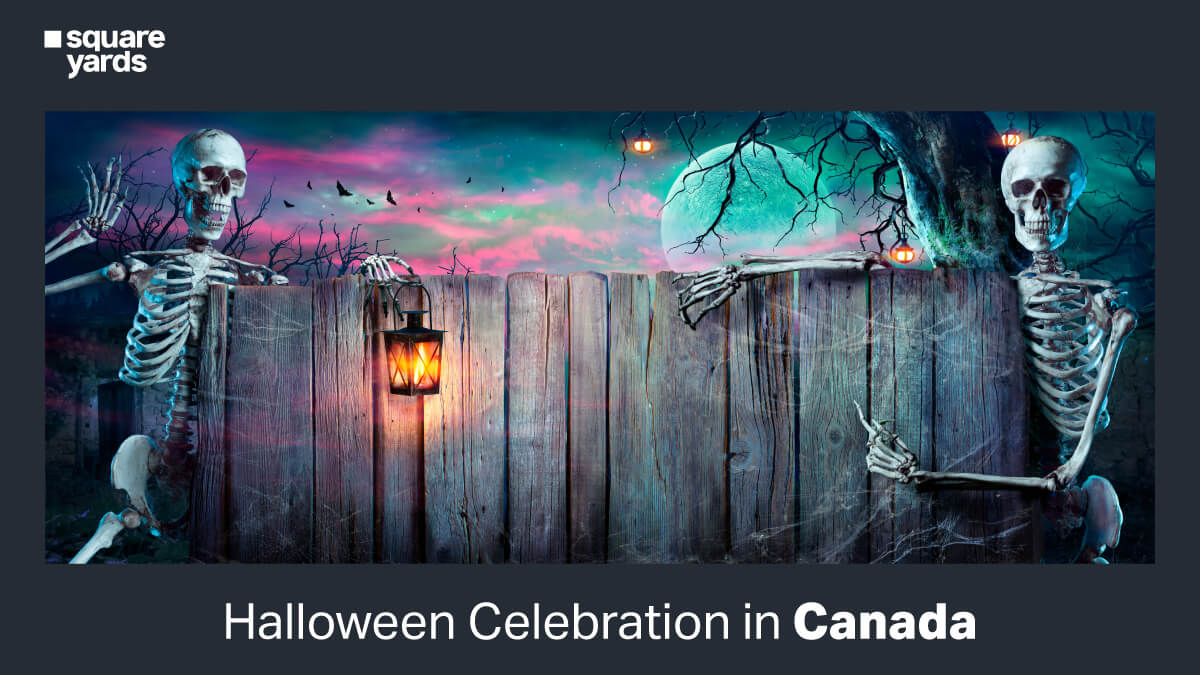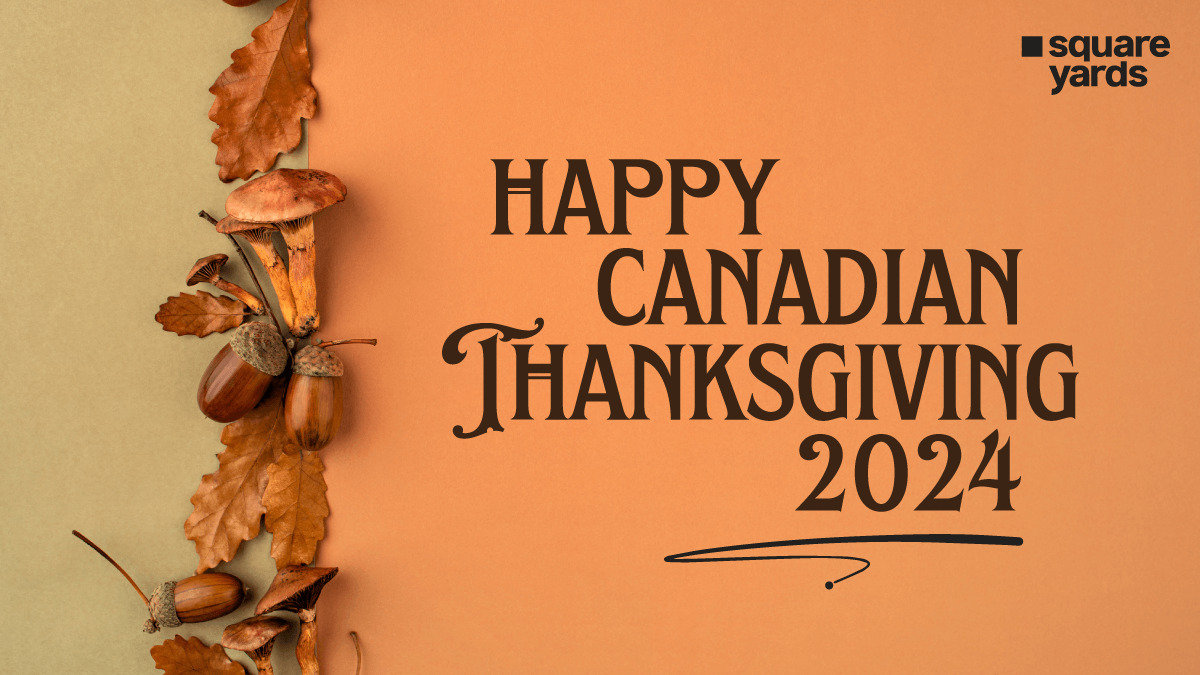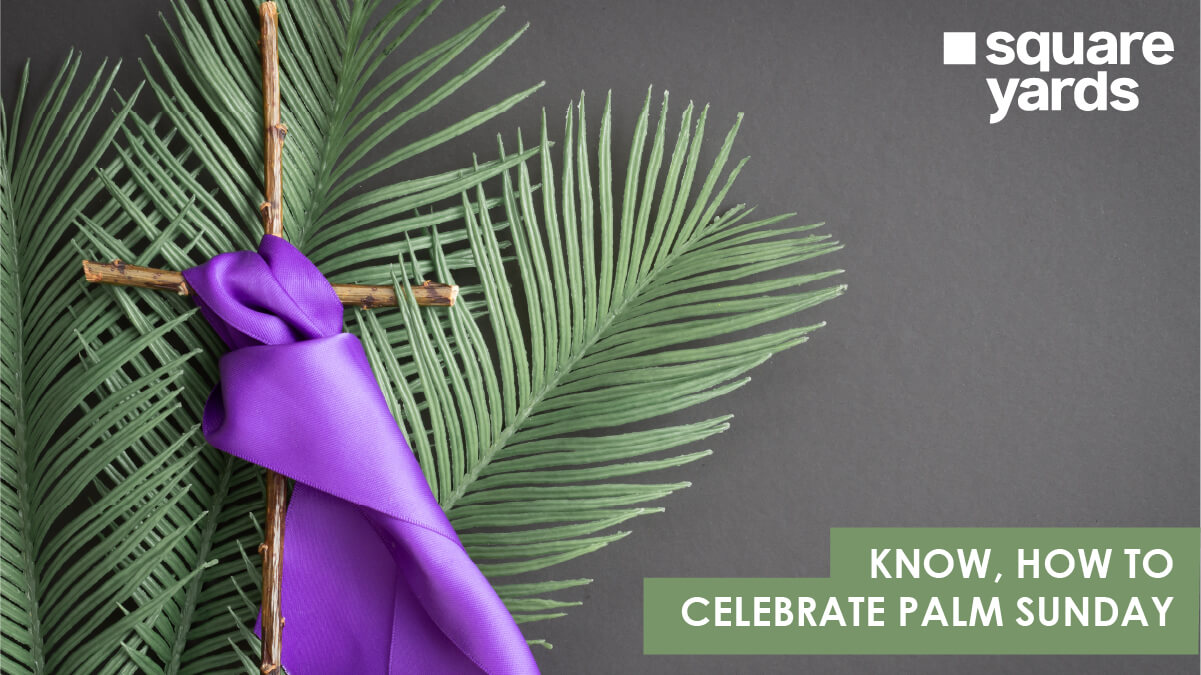Remembering the loved ones who went to a heavenly abode long ago stands true when Canadians celebrate All Souls Day, also called All Saints Day. On this very day, a remembrance ceremony is held for all the Christians who left for their heavenly abode. The All Souls Day, also known as All Hallows’ Day, is observed to spur all the faith that elderly Christian souls can embark upon each Canadian. This piece pertains to an in-depth story trail about All Saints Day in Canada, its long-term celebrations, and the reasons behind celebrating it. Dig deep to fetch detailed information about All Souls Day and leave famished.
What is All Saints/All Souls’ Day?
November 1st signifies All Saints Day in Canada. Historically, this occasion began to oppose the growth of pagan worship in the Roman Empire. Originating around 609 AD, this was a period of venerating Christian saints. Christians still celebrate All Saints’ Day with a banquet and supplication. In 2024, All Saints Day in Canada will be celebrated on Friday, November 1st.
Lastly, November 2nd is All Souls Day, a moment to pay homage to those whose spirits are yet to be purified. In Christianity, it’s crucial to plead for the souls of the deceased so that they attain the ultimate serenity in Heaven after departing from this world. Post-death, those who aren’t yet prepared for Heaven persist in a space referred to as Purgatory. On All Souls’ Day, Christians pray for these spirits and their secure journey to Heaven. The All Souls Day will be celebrated on Saturday, November 2, 2024.
Both Christians and non-Christians partake in these autumn celebrations. These festivities go back thousands of years, making it easy to confuse them with similar traditions. Ultimately, they’re all methods to pay homage to the dead, the transitioning seasons, and recollection.
The History of All Saints’ Day/ All Souls’ Day
The All Saints Day in Canada was originally meant to commemorate the countell Christians martyred by Roman persecution. To honour their sacrifice, the Church began designating special days for remembrance. In 607 AD, Emperor Phocas gifted the Roman Pantheon to the pope. The pope removed the pagan statues of other Gods and consecrated the temple to honour “all saints” who suffered under Roman persecution. Since there were far too many martyrs to honour individually, a single day was set aside for them all. Pope Gregory III moved this day to November 1st in the following century, establishing it as All Saints’ Day.
Fast forward to the tenth century, when Abbot Odela of the Cluny monastery introduced November 2nd as “All Souls’ Day. This became a day to remember not just the martyred ones but all Christian souls instead. All Saints’ Day and All Souls’ Day offer the right moment for reflection. It’s a time to think about the Christians who have inspired you and the kind of Christian you aspire to become!
When is All Saints and All Souls Day?
All Saints Day in Canada is celebrated on November 1, while All Souls Day is celebrated on November 2, 2024. In the Catholic tradition, November 1st and 2nd are occasions to remember the saints and deceased. Even though Halloween is the American variant of the Catholic devotion days, numerous individuals still recognise the historical importance of All Hallows’ Eve.
How to Celebrate All Saints /All Souls’ Day
Catholics typically attend church on All Saints Day in Canada, but the regulations for attending church will differ depending on the nation. Some nations do not mandate a church ceremony if the celebration doesn’t happen on Sundays. Typically, the 8-blessings recounted in Jesus’ Sermon on the Mount in the Gospel of Matthew, also known as the Beatitudes, are read on All Saints’ Day.
certain individuals may place flower offerings on the tombs of deceased relatives, while others may visit the gravesites of their departed loved ones and light candles.
All Saints Day/All Souls’ Day Traditions
Although a common tradition in Western countries, everyone has a separate way of celebrating All Saints Day. But what is common among this varying nature of celebration? It is that the remembrance always engulfs loved ones and family together in memory of those who have left us for the next journey. The Catholics express their unique gesture for All Souls Day by attending a mass together, keeping the emotions at par. In this mass, beatitudes are read along with a prayer for saints who have taken the road to the heavenly abode. People also visit the gravesites of their loved ones to honour them and keep their memory and essence alive forever in their hearts.
Families in Latino communities meet near the gravesites to attend a feast that includes the favourite dishes of the departed souls. People in Italy bake All Saints Day bread and share it with all their loved ones.
Why Do We Celebrate All Saints’ Day?
After learning about All Saints Day and All Souls Day, the question that pops into our mind is, what is the curiosity behind the observance of this day? In essence, this occasion (with All Souls’ Day) arises from the trust that the living are linked to those in heaven. Within Christianity, paying due respect to the departed, especially those who remained steadfast in their lives, is crucial.
All Souls’ Day presents a chance to show appreciation for the devotion and service rendered by the saints. Although some popular saints have their day of remembrance, not all do. This occasion offers a platform to express gratitude towards the celebrated and the obscure saints. The festivities of All Saints’ Day comprise:
-
The Holy Ones
- It’s a moment to pay homage to the commitment and work of saints who lack a specific day of observance, such as St. Patrick.
- It’s essential to acknowledge the devotion of those holy ones who are known solely to God.
-
A Catholic Sacred Day:
-
- All Saints’ Day is a Sacred Day of Obligation in the Catholic Church.
- This signifies that attending Mass is compulsory for all Catholics unless under extraordinary circumstances.
- It’s a day to express appreciation and honour the holy ones who have preceded us.
-
Redemption
- Apart from focusing on the saints, this is also an opportunity to recognise their role in our redemption.
- In Christianity, everyone can lead others to God, which is a reason for celebration.
-
Harmony
- All Saints’ Day unites Christians.
- It’s a moment for unity, family, and recollection.
- There are various communal and familial activities, and this event holds a special place in the hearts of many.
At the moment, the celebration of Halloween is frequently associated with All Saints Day in Canada. Despite an increasing tendency toward secularity, orthodox Christians urged a return to the religious origins of the event. In the end, individuals maintain their personal connections to All Saints’ Day. For those who feel a profound bond with the festivity, All Saints’ Day offers a tangible link to the past and the extensive story of Christianity and faith.
How is All Saints’ Day/All Souls’ Day celebrated Worldwide
All Saints’ Day is observed differently across the world, with each nation having separate customs. These traditions have been integrated into existing customs, creating unique November 1st festivities. Let us discover some of the most prevalent customs worldwide.
-
In America
In North and South America, All Saints’ Day is frequently referred to as Dia de Los Santos, its Spanish name. It is one of the most significant annual holidays in Latin America, celebrated primarily in Catholic and Hispanic communities across America and Canada. Dia de los Santos is also known as Dia de los Muertos or Day of the Dead. In other regions worldwide, All Saints’ Day traditions combine with local beliefs to blend the old and the new. In countries with a strong native culture, this celebration is associated with numerous distinct customs.
In Latin America, families visit the graves of their deceased loved ones, usually bringing food and flowers. Although this is one of the most well-known Mexican funeral customs, it is popular across Latin America. It is a time of celebration and inclusivity. Guests are welcomed with traditional dishes, focusing on the preferred foods of their ancestors, and parties held in cemeteries mark this a joyful occasion.
-
In Europe
Europe boasts the most diverse traditions when it comes to All Saints’ Day. Like Latin America, All Saints’ Day is celebrated differently in different countries across Europe. In Eastern Europe, it’s particularly customary for families to light candles and bring them to the graves of their loved ones. On the other hand, countries like Germany and Austria follow the tradition of godfathers gifting braided pastries to their godchildren. In the past, it was common for families to hold feasts at gravesites and leave food and drink for the deceased. However, nowadays, these feasts are typically held at home.
In Ireland, All Saints’ Day draws heavily from the Celtic tradition. It was believed to be a time of the year when the boundaries between the living and the dead were blurred. Ancient people believed their deceased loved ones could communicate with them during this time. Irish customs help maintain these ties between the living and the dead. Italy, home of the Catholic Church, has unique All Saints’ Day traditions. While each region and family has its own way of celebrating, everyone prepares the All Saints’ Bread. It is a dough mixed with raisins, figs, and walnuts. A special cake is also common during the holiday. Gifts are exchanged, and town parades are organised to honour the revered saints.
-
In Philippines
In the Philippines, the world’s third-largest Catholic country and a former Spanish colony, All Saints’ Day is celebrated similarly to that in Mexico. It’s a day for families to come together, hold large reunions, and visit gravesites.
As with other customs, there is traditional food and music. People pay their respects at the graves of their loved ones, and some even camp overnight in cemeteries. Filipinos respect their dead and take care of cemeteries all year, with special decorations during the All Saints’ Day festivities, as the dead spirits are believed to visit.
Many Filipinos travel outside of their province to return home for this holiday. This cherished tradition pays homage to deceased loved ones and reconnects the family.
Wrapping up
A day of remembrance, wholly dedicated to souls that departed to heavenly abode, a day to keep the link between loved ones and departed souls alive, is celebrated as a festivity named All Souls Day. All Saints Day 2024 will be observed on November 1st 2024, making it memorable again for the family and loved ones. It is a time to remember their contributions to the Christian community and to strive to live with faith and devotion. Celebrated in various ways worldwide, All Saints’ Day and All Souls’ Day is a reminder to cherish our loved ones and pray for the eternal rest of their souls.
You May Also Read :
| Celebration of Eid Ul Fitr in Canada | Eid Ul Fitr in Canada |
| Guide of Victoria Day in Canada | Victoria Day in Canada |
| How To Celebrate Mothers Day in Canada | Mothers Day in Canada |
| Know About Eid Al Adha | Eid Al Adha |
Frequently Asked Question (FAQs)
Do Canadians celebrate All Souls Day?
Yes, Canadians celebrate All Souls Day. The day is observed on November 2nd every year.
Is November 1st All Saints Day or All Souls Day?
November 1st is celebrated as All Saints' Day, commemorating all the saints and martyrs who have lived throughout Christian history. On November 2nd, All Souls' Day is observed to remember those who have died in the name of the faith.
Who celebrates All Souls Day?
The Catholic Church recognises two days for prayer: All Souls' Day and All Saints' Day. However, believers in other Christian denominations also mark these feasts. Indigenous customs and beliefs are also included in several celebrations around the world.
Is All Souls Day a holiday in Canada?
All Souls' Day is not an official holiday. Businesses operate within their regular hours, and many individuals visit family graves on this day.











